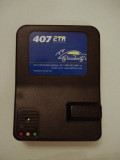How to Maintain Credit Card Security
Why Credit Card Security is Important
Maintaining credit card security is paramount to preventing identity theft, avoiding fraudulent charges, and protecting your credit score. Keeping your credit card information in secure locations will partially mitigate the potential risks of identity thieves stealing your information and using it for purchases, to obtain credit under false pretenses, and/or to sell it to others. Any of these items could also negatively affect your credit score. Follow the tips below to maintain credit card security and protect your credit card information.
Credit card Information Storage
First, you should create a summary of all of your credit card information. You can do this in a spreadsheet on your computer or in a notebook.
Credit card information to include in the summary:
- Name of issuer (bank, credit union, etc.)
- Issuer contact information (customer service phone number--especially important to report lost/stolen cards, mailing address)
- Account number (if you lose a card and receive a replacement, you will need to update the account number)
- Expiration date (when you receive a new card, update the expiration information in your summary)
- Security code (three digit code on back of card)
- Website address
- Website login information (user name, password, security questions and answers)
Credit Card Information Security
If you choose to maintain your credit card information in a spreadsheet, you should consider password protecting it (just don't forget the password you used!) This is especially important if more than one person uses your computer and/or your login does not require a password.
If you choose to maintain your credit card information in a notebook, keep it in a secure location, such as a fireproof and waterproof safe or a safety-deposit box. The combination to the safe and/or key to the safety deposit box should also be stored in a secure location.
Secure Physical Credit Cards
Now that you have the information stored, let's turn to the physical credit cards themselves. Many credit cards now have contact-less features, which require additional security measures.
For those you use on a regular basis, keep them in your wallet or pocketbook. Contact-less cards should be placed in RFID blocking sleeves, to prevent the information from being read remotely. You can also purchase an RFID-blocking wallet.
If you lose your wallet, you should consult your credit card information summary and call customer service to cancel your card, check for any fraudulent charges, and request a replacement card.
For credit cards that you use infrequently, such as department store cards, you can place them all in a business card holder wallet and store in a secure location. A fireproof and waterproof safe, safety deposit box, and/or box that thieves would not likely consider (i.e. a food storage box in the pantry) are all sufficient.
While credit cards are supposed to be signed in order to be used, you can write "See ID" so that thieves do not have access to your signature (and someone else cannot sign it if you left the signature area blank), in case the credit card is lost or stolen. If you lose your entire wallet, however, thieves will likely also have your driver's license or ID card, which contains your signature.
Credit Card Statements
Nearly all credit card issuers will allow you to view your statements online, and you can download the statements each month onto your computer. If you choose to do so, back up your hard drive regularly, and store the electronic statements in a location that is password-protected to enter.
If you choose to receive paper statements, then you can place them in file folders and/or in sheet protectors in a binder. You can organize by month (all credit card statements received in a month are placed in the same folder/sleeve) or by credit card issuer. If you keep them in file folders, you should store them in a fireproof and waterproof file drawer that can be locked (keep the key in a safe place). If you keep them in the binder, it should also be stored somewhere that can be locked (desk drawer or larger fireproof waterproof safe) and/or not obvious (in a binder marked as something else, possibly recipes, on a bookshelf with many other binders).
After each credit card use, save the receipt (electronically or in a file folder or plastic sleeve). When you receive the statement, compare the charges on the bill to the receipts you have saved. If there is a charge for which you do not have a receipt and the name looks unfamiliar, call the credit card company to determine if it was a valid or fraudulent charge.
If you choose to receive paper receipts and statements, you can staple/clip all of the related receipts to the credit card statement (do NOT do this for tax-related receipts, such as charitable contributions or eligible medical expenses).
Beyond Credit Cards
You can keep other cards in the business card holder wallet along with your credit cards. If you do so, you may want to update your credit card information summary, in case the entire business card holder wallet is lost or stolen.
Suggestions for other types of card information include:
- frequent flyer cards for airlines
- reward cards for hotels/lodging and/or dining
- reward cards for shopping (especially if you have a card attached to your keychain)
- medical information cards
- phone cards
- library cards
- gasoline cards
Monitor Your Credit Report
Even if you do not see any suspicious charges and/or haven't lost your credit cards, you should review your credit reports annually. You can do this for free, and since each of the major credit reporting bureaus (Experian, Equifax, and TransUnion) are required to provide you with one free report per year, you may want to request one every 4 months.
If you see any credit cards or credit lines on the report that are not on your credit card information summary, contact the credit reporting bureau to request more information (credit card issuer name may have changed) and/or place a fraud alert on your report.
Shred Old Credit Card Information
When you receive a new credit card, you should shred the old card (and documents with old PIN number, if applicable) to prevent your information from potentially being found in the dumpster. This also applies to credit cards that you have cancelled or have been cancelled by the issuer.
Online Transactions with Credit Cards
When making purchases online with a credit card, there are additional safeguards to employ.
- Always use password-protected Wi-Fi and/or never use unencrypted or open networks.
- Never write your credit card number and/or security code in an email
- Do not take photos of your credit card and send via email or post online
While many credit cards now come with chips, these are not effective for online transactions and only apply when using a physical card. It has been reported that identity theft and fraud have increased because criminals are focusing on online activity instead of in-store purchases with stolen credit card information.
Credit Card Breaches
If you purchased goods or services from a company, whether with your physical credit card or online/over the phone, and that company experiences a security breach, you should take steps to protect yourself from potential identity theft.
The company will likely post information about the breach on its website and also email you with more information, including whether your credit card information may have been obtained. If so, you may be offered free credit report monitoring. You can also place a fraud alert on your credit file with the three major credit reporting agencies, however, if you need to apply for credit in the next three months (i.e. applying for a mortgage or auto loan), you will need to lift the fraud alert so that the lender can qualify and approve you.
If you suspect your credit card information has been used fraudulently, contact your credit card issuer. You will be transferred to the fraud department, who will assist you with reversing the fraudulent charges and send you a new credit card with a new number.
If you had set up automatic recurring charges, the credit card company typically allows these charges to go through for the next 90 days, while you update your credit card information. In certain instances, the credit card issuer will have provided your new credit card number to the institutions so that your recurring charges can continue.
Maintain Recurring Charge Information
If you have payments automatically charged to your credit card (such as phone, utilities, subscriptions, insurance, etc.), you should add relevant details to your spreadsheet with all of your credit card information.
Information to include:
- Name of company submitting recurring charge to credit card issuer (i.e. AT&T, SiriusXM, Netflix, Amazon)
- Account number
- Contact information (phone number, website URL)
While your credit card company will often provide updated credit card information (i.e when your credit card expires, credit card company will provide new expiration information), if your credit card is lost or stolen and you receive a new credit card number (not just a new expiration date), you may need to contact these institutions to provide the new credit card number, security code, and expiration date. Having this information in the spreadsheet will help ensure you do not forget a recurring payment, especially for those that are not processed every 90 days (i.e. car transponder for tolls, annual insurance payment, etc.)
As mentioned above, if your credit card is lost or stolen, the credit card company will likely let the next 90 days of recurring charges go through, to avoid any disruptions to your services.
Copyright 2011, 2019. All rights reserved.
This content is accurate and true to the best of the author’s knowledge and is not meant to substitute for formal and individualized advice from a qualified professional.
© 2011 Delia Egan Schaffner








